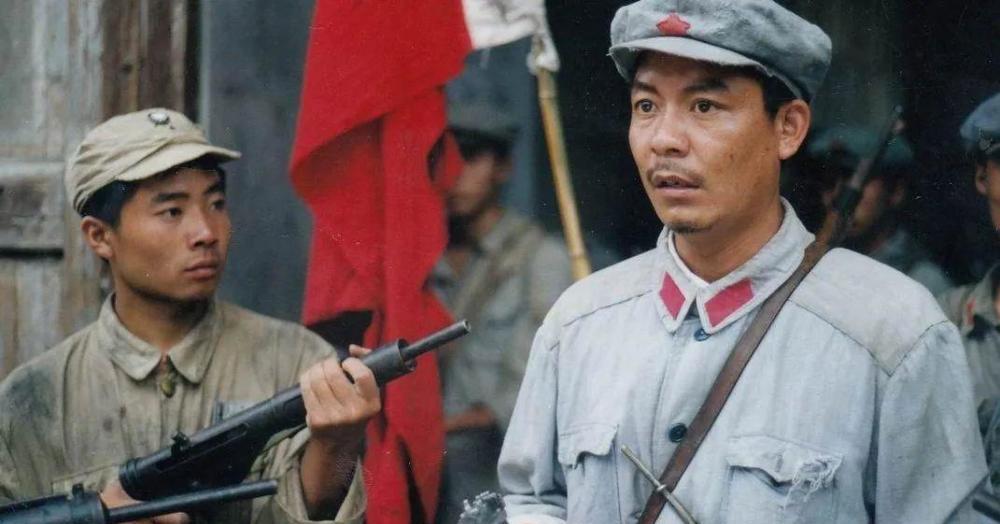In January 1941, the Kuomintang 32nd Army surrounded the New Fourth Army headquarters and sent 80,000 regular troops to besiege the New Fourth Army. Because the enemy was outnumbered, the New Fourth Army was still unable to break through after seven days and nights. On 14 January, under the orders of the temporary commander Rao Shushi, the New Fourth Army decided to disperse the breakthrough. During the dispersed breakout stage, the New Fourth Army was divided into three columns, of which the first column successfully broke through under the leadership of column commander Fu Qiutao.

In fact, although the first column successfully broke through, many changes still occurred in the process of breaking through. For example, during the dispersed breakout phase, Zhao Lingbo, deputy commander of the First Column, temporarily ordered the First Column to withdraw in place and wait for the Kuomintang to come and surround it. According to the plan formulated before the breakthrough, the New Fourth Army must disperse the breakthrough, not withdraw in place. Therefore, the deputy chief of staff of the first column took the lead in refusing to carry out Zhao Lingbo's temporary orders and insisted on dispersing the breakthrough as originally planned. So, who is this deputy chief of staff who refuses to carry out the interim order? What happened to him?
The deputy chief of staff's name was Wu Yongxiang. Wu Yongxiang was born in 1914 in Miluo City, Hunan Province. In 1930, at the age of 16, Wu Yongxiang joined the Red Army, and soon after, Wu Yongxiang joined the staff of the Red 16th Army as an spie. In 1934, the main force of the Red Army, the Long March, Wu Yongxiang did not follow the large troops to participate in the Long March, but stayed in the south and insisted on guerrilla warfare for three years.
In 1937, the Anti-Japanese War broke out in full swing, the guerrilla forces in the eight southern provinces were reorganized into the New Fourth Army, and Wu Yongxiang, who insisted on three years of guerrilla warfare, also entered the New Fourth Army in 1938 and served as the commander of the second battalion of the first detachment of the New Fourth Army. After this, Wu Yongxiang led the second battalion to Anhui and began to follow Ye Ting, commander of the New Fourth Army, and Xiang Ying, deputy commander, in the Anhui area to resist the Japanese invaders.
In 1939, Wu Yongxiang was promoted to chief of staff of the First Regiment of the New Fourth Army. In 1940, the New Fourth Army was reorganized and three columns were established, and Wu Yongxiang was appointed deputy chief of staff of the first column. It was also during this appointment that Wu Yongxiang experienced the Anhui Southern Incident. In 1941, the Anhui Southern Incident broke out, because the enemy was outnumbered, the New Fourth Army was still unable to break through after seven days and nights of bloody battles, and finally under the command of Rao Shushi, the New Fourth Army chose to disperse and break through.
During the dispersion breakout phase, Wu Yongxiang's first column was led by the commander Fu Qiutao, and according to the plan, they broke through on their own and then went to the southern Jiangsu region. However, Zhao Lingbo, the deputy commander of the first column, disobeyed the military order and ordered Wu Yongxiang and others to withdraw in place. Wu Yongxiang and others refused to carry out Zhao Lingbo's temporary orders, and strongly demanded that the breakthrough be dispersed to southern Jiangsu according to the original plan, and finally at the insistence of Wu Yongxiang and others, their troops successfully broke through. However, the deputy commander Zhao Lingbo defected to the enemy and became a shameful traitor.
After the breakout, Wu Yongxiang returned to the rebuilt Sixth Division of the New Fourth Army and served as the commander of the 54th Regiment of the 18th Brigade. Soon after, Wu Yongxiang also served as the commander of the Third Military Subdistrict of the Southern Jiangsu Military Region, and he led his troops into Hangzhou, Jiaxing and other places to consolidate and develop the anti-Japanese revolutionary base areas in southern Jiangsu.
During the Liberation War, Wu Yongxiang served as the chief of education of Xuefeng University and the commander of the First Military Sub-district of the Central Soviet Military Region. At the end of 1948, Wu Yongxiang led his troops to participate in the Battle of Huaihai, and in the first stage of the Battle of Huaihai, he participated in the Battle of Nianzhuang to encircle and annihilate Huang Baitao's corps. In the Battle of Nianzhuang, Wu Yongxiang led his troops to fight a bloody battle with the New Fifth Army reinforced by the Kuomintang for 13 days and nights, providing favorable support for the large army to completely annihilate Huang Baitao's corps.
After the founding of New China, Wu Yongxiang served as deputy commander and commander of the 21st Army, and in 1953, he led his troops to Korea and participated in the War to Resist US Aggression and Aid Korea. In 1955, Wu Yongxiang was awarded the rank of major general and became the founding major general. However, years of war had dragged down Wu Yongxiang's body, and in 1956, Wu Yongxiang withdrew from the team due to illness, and then treated his illness in Shanghai for a long time, and died of illness in 1970 at the age of 56.
Resources:
Memoirs of Founding Major General Wu Yongxiang Wu Yongxiang